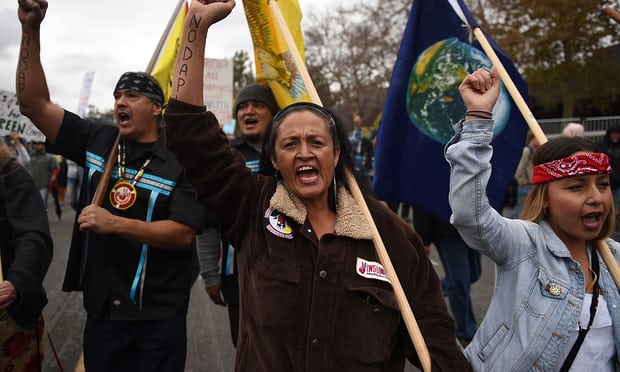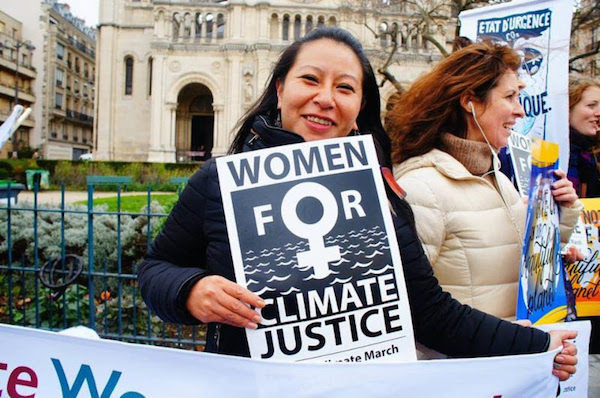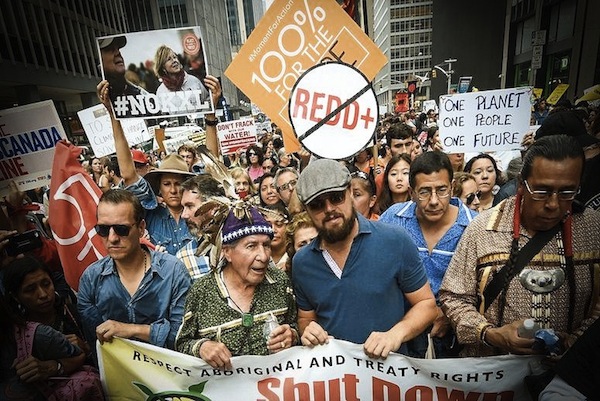Many believe the fight to combat climate change hinges on the aligned interests of capital and state. Give the Elon Musks of the world enough time and resources and they will innovate us out of impending climate catastrophe. Get the G20 in a room and they will hammer out a deal and create regulations to enforce it. Or so the thinking in some circles goes. Yet throughout history, the interests of the state have slid into alignment with big oil and big profits rather than lining up with our rivers, our air, our wildlife and our people. But the first people of this land, who often live on the frontlines of our metastasizing climate disaster, remain resolute. It is our sacred responsibility to protect and preserve this planet for future generations.
Continue reading... →Studies show that collective intelligence rises with the number of women in a group—but women are often underrepresented at talks like COP21. Meet 15 leaders worth listening to. Women, particularly those in developing countries, are on the frontlines of a changing climate. Extreme weather events, deforestation, and loss of biodiversity threaten their survival and that of their families. Yet, when confronted with social and economic exclusion, women’s vulnerabilities remain hidden and their voices quiet. Women have been severely underrepresented at high levels of policymaking around global environmental concerns as well. In the climate arena, the need to improve women’s participation in negotiations was explicitly recognized by COP 7 in Marrakech in 2001 as the impact of gender balance on decisionmaking became more evident. Why is this a problem? Studies show that collective intelligence rises with the number of women in a group. Engaging a critical mass of women is linked to more progressive and positive outcomes and to more sustainability-focused decisionmaking across sectors. Yet, women have remained a notable minority in climate negotiations at both the national and international level, in the global scientific body on climate change, the Intergovernmental Panel on Climate Change (IPCC), and in media debates about climate. Women’s representation in bodies and […]
Continue reading... →A new report finds that over the past year, the amount of money committed to be pulled from companies that produce coal, oil, and natural gas has grown fifty-fold. Over the past year, investors holding $2.6 trillion in assets have pledged to divest from companies that produce coal, oil, and natural gas, according to a report issued Tuesday. The study was issued by the group Divest-Invest, which calls on institutional and private investors to hold themselves accountable for the environmental impacts of their investments. “One year ago today, exactly, we announced that the total [divestment] at that point was $52 billion, and committed to tripling that amount before the U.N. Climate Conference in Paris in December of this year,” said Ellen Dorsey, executive director of the Wallace Global Fund, at a press conference Tuesday in New York. “That means we’ve seen a fiftyfold increase in the total combined assets of those committed to divestment from fossil fuels, and with it, we’ve seen a growing number of commitments to invest in climate solutions,” Dorsey said. The report comes as Pope Francis landed in the United States, where he is expected to press again for immediate and decisive action on climate change. […]
Continue reading... →

